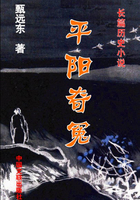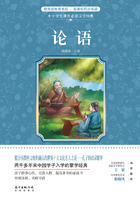The next step in the peace intrigue took place at the opening of the next year, 1865. Stephens attempted to address the Senate on his favorite topic, the wickedness of the suspension of habeas corpus; was halted by a point of parliamentary law; and when the Senate sustained an appeal from his decision, left the chamber in a pique. Hunter, now a Senator, became an envoy to placate him and succeeded in bringing him back. Thereupon Stephens poured out his soul in a furious attack upon the Administration. He ended by submitting resolutions which were just what he might have submitted four years earlier before a gun had been fired, so entirely had his mind crystallized in the stress of war! These resolutions, besides reasserting the full state rights theory, assumed the readiness of the North to make peace and called for a general convention of all the States to draw up some new arrangement on a confessed state rights basis. More than a month before, Lincoln had been reelected on an unequivocal nationalistic platform. And yet Stephens continued to believe that the Northerners did not mean what they said and that in congregated talking lay the magic which would change the world of fact into the world of his own desire.
At this point in the peace intrigue the ambiguous figure of Napoleon the Little reappears, though only to pass ghostlike across the back of the stage. The determination of Northern leaders to oppose Napoleon had suggested to shrewd politicians a possible change of front. That singular member of the Confederate Congress, Henry S. Foote, thought he saw in the Mexican imbroglio means to bring Lincoln to terms. In November he had introduced into the House resolutions which intimated that "it might become the true policy of...the Confederate States to consent to the yielding of the great principle embodied in the Monroe Doctrine."
The House referred his resolutions to the Committee on Foreign Affairs, and there they slumbered until January.
Meanwhile a Northern politician brought on the specter of Napoleon for a different purpose. Early in January, 1865, Francis P. Blair made a journey to Richmond and proposed to Davis a plan of reconciliation involving the complete abandonment of slavery, the reunion of all the States, and an expedition against Mexico in which Davis was to play the leading role. Davis cautiously refrained from committing himself, though he gave Blair a letter in which he expressed his willingness to enter into negotiations for peace between "the two countries." The visit of Blair gave new impetus to the peace intrigue. The Confederate House Committee on Foreign Affairs reported resolutions favoring an attempt to negotiate with the United States so as to "bring into view" the possibility of cooperation between the United States and the Confederacy to maintain the Monroe Doctrine. The same day saw another singular incident. For some reason that has never been divulged Foote determined to counterbalance Blair's visit to Richmond by a visit of his own to Washington. In attempting to pass through the Confederate lines he was arrested by the military authorities. With this fiasco Foote passes from the stage of history.
The doings of Blair, however, continued to be a topic of general interest throughout January. The military intrigue was now simmering down through the creation of the office of commanding general. The attempt of the congressional opposition to drive the whole Cabinet from office reached a compromise in the single retirement of the Secretary of War. Before the end of the month the peace question was the paramount one before Congress and the country. Newspapers discussed the movements of Blair, apparently with little knowledge, and some of the papers asserted hopefully that peace was within reach. Cooler heads, such as the majority of the Virginia Legislature, rejected this idea as baseless. The Mercury called the peace party the worst enemy of the South. Lee was reported by the Richmond correspondent of the Mercury as not caring a fig for the peace project. Nevertheless the rumor persisted that Blair had offered peace on terms that the Confederacy could accept. Late in the month, Davis appointed Stephens, Hunter, and John A. Campbell commissioners to confer with the Northern authorities with regard to peace.
There followed the famous conference of February 3, 1865, in the cabin of a steamer at Hampton Roads, with Seward and Lincoln. The Confederate commissioners represented two points of view: that of the Administration, unwilling to make peace without independence; and that of the infatuated Stephens who clung to the idea that Lincoln did not mean what he said, and who now urged "an armistice allowing the States to adjust themselves as suited their interests. If it would be to their interests to reunite, they would do so." The refusal of Lincoln to consider either of these points of view--the refusal so clearly foreseen by Davis--put an end to the career of Stephens. He was "hoist with his own petard."
The news of the failure of the conference was variously received.
The Mercury rejoiced because there was now no doubt how things stood. Stephens, unwilling to cooperate with the Administration, left the capital and went home to Georgia. At Richmond, though the snow lay thick on the ground, a great public meeting was held on the 6th of February in the precincts of the African Church.
Here Davis made an address which has been called his greatest and which produced a profound impression. A wave of enthusiasm swept over Richmond, and for a moment the President appeared once more to be master of the situation. His immense audacity carried the people with him when, after showing what might be done by more drastic enforcement of the conscription laws, he concluded: "Let us then unite our hands and our hearts, lock our shields together, and we may well believe that before another summer solstice falls upon us, it will be the enemy that will be asking us for conferences and occasions in which to make known our demands."













